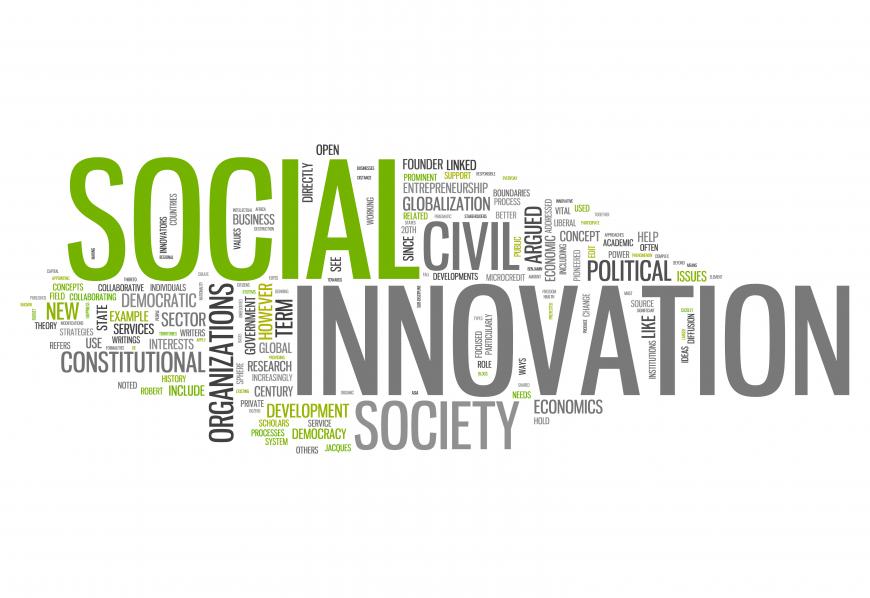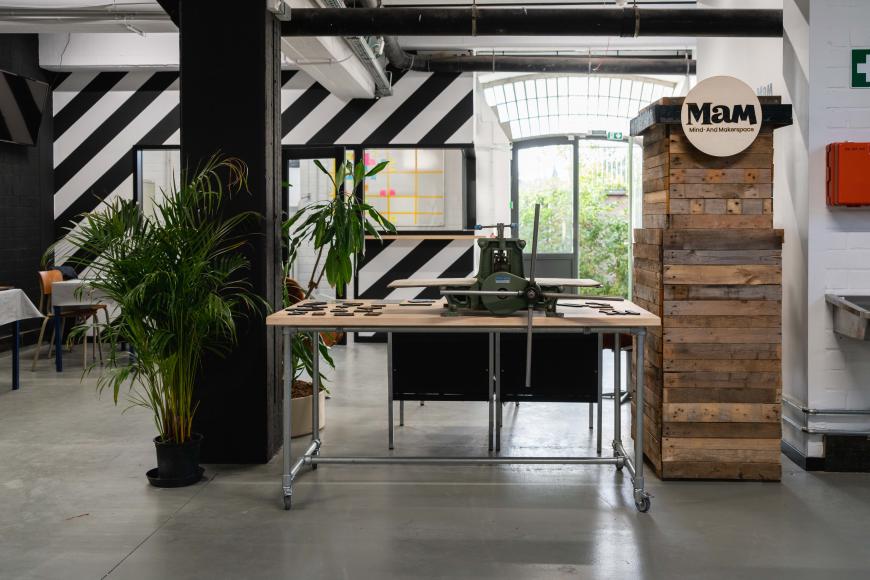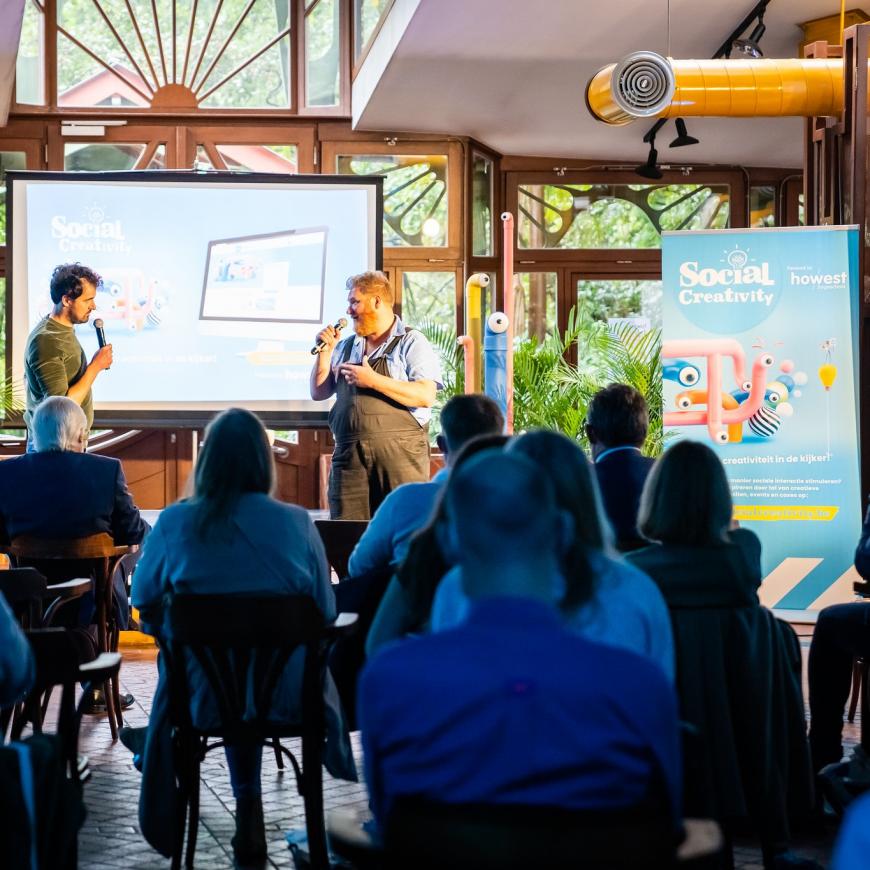
Society & Social Interaction
New forms of Social Interaction in Society
We are living in exciting, yet very complex times. The United Nations (UN) summarizes the major societal challenges in 17 Sustainable Development Goals or SDG's. These challenges cannot be approached from one perspective and the existing socio-economic systems appear to be inadequate.
Transformation is possible both globally and locally if new forms of social interaction are sought in which all actors in the ecosystem connect with each other, think, act and so initiate sustainable social transformation by acting.
Our researchers are working on a range of research projects to contribute to social transformation at the meso and macro levels and to grow into social innovation in the form of services, products and processes. Our field studies focus on new social interactions within and between ecosystems, in order to achieve greater social creativity, as well as on new forms of design and on making that social impact visible.

Creativity, Innovation and Entrepreneurship
The acquired insights and actions of the various projects reinforce each other and are connected and shared with other actions within and outside our university of applied sciences. Moreover, we call on new technologies such as 3D printers and artificial intelligence to discover and seize new opportunities and solutions.
Our researchers often use a socially creative methodology in this process. Within the vision of Howest, the concepts of 'creativity, innovation and entrepreneurship' occupy an important place. As an innovative university of applied sciences, we have been integrating social and technological creativity into our study programmes and research projects for some time now. In co-creation with the persons involved, methods are developed through research in order to give an issue a positive, original interpretation.

Social creativity congress
In 2020, we organized the first edition of the "Social Creativity Congress". Socially creative research, projects and collaborations with partners were highlighted. The Howest Community, which we all model, grows and flourishes in collaboration with many partners. As a university of applied sciences, we do not only want to focus on training students, but also really prepare them for the future professional life. We do not only want to qualify, but also to socialize. The cornerstone of socialization models social interaction. Based on our values of 'serve - empower - care', we make connection and want to constitute a close-knit community in interaction with the wider environment.
An important breeding ground of this social creativity within Howest is the Mind and Makerspace (MaM). The MaM is the new creative space for thinkers and doers in Bruges. It is a public space where makers, schools, businesses, social organizations, students and many other creative persons meet. The MaM can excite, inspire, motivate, create and connect. It is a place for everyone. In this respect, it also welcomes vulnerable groups in a highly inclusive way with creativity as a connecting factor.
The 'Social Creativity Congress', which we would like to turn into an annual event, has known an atypical start in this corona year. We would like to further develop this in the future so that the promotion of a sustainable social environment does not remain a dead letter.
Your support
Practice-oriented scientific research is in the start-up phase often financed by the funds of the university of applied sciences itself. Through the Howest Foundation, we can better spread the results and make the research projects more sustainable. Our researchers dream of building sustainable centres of expertise where they have a place to start working in their field. We want to use social innovation to promote social change. In other words: thanks to your support, we generate more impact!
More information about this research topic? Contact: research@howest.be
Ongoing project
- Mind- and Makerspace (MaM): With this initiative, Howest makes part of its infrastructure, machines, research expertise and other knwo-how publicly accessible. The MaM is a space where creativy and encounters are central. You can work with laser cutters, 3D printers, embroidery machines, CNC, ... There is also room for crafts, such as ceramics and glass processing, a wood workshop, a photo studio and an audio studio. The MaM bundles a lot of creative projects and works closely together with social organizations, students, schools and businesses as well as with the individual creative maker who wants to work in the MaM. Through collaborations with various vulnerable groups, this space offers them an inspiring, stimulating environment where everyone can work creativily based on their own strenghts and interests.
- Politicizing Social Work for the Future with More Impact and IT Support (Post-It): it is the role of social workers to initiate a public dialogue on social issues. How do social workers fill this politicizing role? What changes do they initiate and how can the social impact be made visible? In this practical research we also investigate whether artificial intelligence (AI) can support the social workers in their politicizing role.
- Peer Support: Peer Support is a method from, for and by young people in which they are there for each other, care for each other, support each other and listen to each other. It was developed to prevent and reduce bullying behaviour. The peer support researchers hace since broadened the methodology so that it can be used in various practices.
- Design for (every)one (D4E1): D4E1 is an interdisciplinary research group of product designers and occupational therapists that contributes in an original way to the creation of assistive devices accessible and customized for persons with physical disabilities.
- Social Work and Police in a Network (SPIN): Belgian governments are still looking for an affective and intergrated approach to social disadvantage. The local (neighbourhood) police have a good overview of vulnerability and are therefore an important link in early detection. Through the analysis of police data and surveys of police districts and the Social Work Department, a functional network of local police and wellbeing actors is being developed.
- Social Work and Social Urban Development and Renewal: With this research platform within the Association UGent, to which Howest belongs, the expertise in the field of urban development and renewal is combined and further developed. The focus here is on the pursuit of principles and social justice, human rights, collective responsibility, solidarity, social equility and respect for diversity in interventions in the urban fabric.
- Social creativity: This Howest initiative aims at stimulating social interaction in a positive and creative way in view of a sustainable future.
